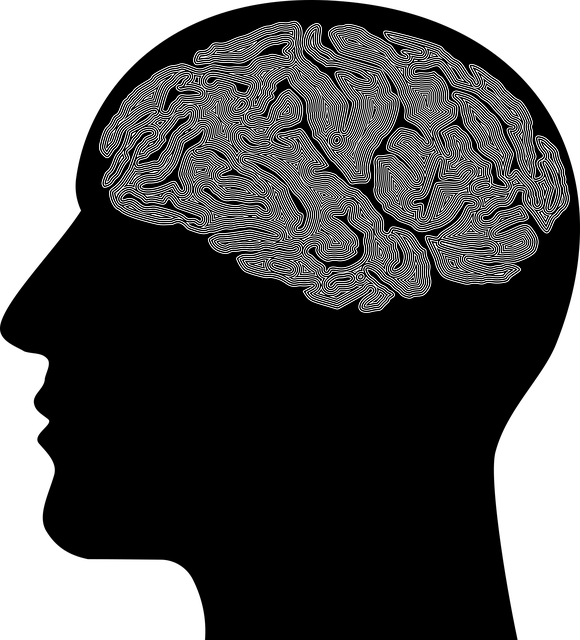Broomfield Spiritual-Religious Issues Therapy highlights the significance of cultural sensitivity in mental healthcare. Therapists create inclusive environments by actively listening to clients' unique cultural narratives, respecting their spiritual beliefs, and integrating these perspectives into treatment plans. This approach empowers individuals to manage their mental health while reconciling religious principles with self-care practices, fostering trust and open dialogue. By tailoring support to diverse cultural and spiritual backgrounds, therapists enhance therapeutic outcomes, improve resilience, and provide holistically effective care in Broomfield's context.
Mental healthcare practices are evolving to meet the diverse needs of a globalized society. Cultural sensitivity lies at the heart of inclusive care, ensuring effective treatment regardless of background. This article explores essential components for culturally competent mental health services. We delve into understanding cultural nuances, addressing spiritual and religious issues in therapy, creating welcoming environments, and enhancing treatment outcomes through tailored approaches. By examining these aspects, we aim to provide insights on how professionals can navigate Broomfield spiritual-religious matters, accommodate diverse belief systems, and ultimately improve patient care.
- Understanding Cultural Sensitivity: The Foundation of Inclusive Mental Healthcare
- Broomfield Spiritual-Religious Issues in Therapy: Navigating Delicate Matters
- Creating a Safe Space: Accommodating Diverse Belief Systems and Practices
- Enhancing Treatment Outcomes: Strategies for Culturally Competent Care
Understanding Cultural Sensitivity: The Foundation of Inclusive Mental Healthcare

Understanding Cultural Sensitivity forms the bedrock of inclusive mental healthcare. In a diverse society, every client brings their unique cultural background, experiences, and beliefs to therapy. Broomfield Spiritual-Religious Issues Therapy recognizes that these factors significantly influence an individual’s perception of mental health, coping mechanisms, and response to treatment. By embracing cultural sensitivity, therapists create a safe and supportive environment where clients feel heard, understood, and respected.
This approach goes beyond mere diversity training; it involves actively listening to and learning from clients’ cultural narratives. Therapists must be adept at navigating sensitive topics, such as spiritual beliefs and religious practices, to foster genuine connections. Incorporating culturally informed techniques like coping skills development and emotional well-being promotion can empower clients to build inner strength and navigate life’s challenges effectively.
Broomfield Spiritual-Religious Issues in Therapy: Navigating Delicate Matters

In the realm of mental healthcare, addressing spiritual and religious issues is a delicate yet crucial aspect, especially when adopting a Broomfield approach. Therapists must navigate these sensitive matters with utmost care to foster an inclusive environment for clients from diverse backgrounds. Understanding a client’s spiritual beliefs and incorporating them into treatment plans can significantly enhance the therapeutic process. Many individuals seek support for mental health concerns while aligning their self-care practices with their religious or spiritual principles, such as mind over matter techniques rooted in their faith.
By integrating cultural sensitivity, therapists can create safe spaces where clients feel heard and respected. This involves learning about various religious traditions, rituals, and practices to avoid potential conflicts or misunderstandings. For instance, some cultures may have specific beliefs around mental illness, healing, and the role of spiritual interventions, which are essential to consider when tailoring treatment approaches. Mental health awareness and sensitivity to these spiritual-religious issues empower clients to embrace self-care practices that resonate with their personal values while addressing their mental well-being.
Creating a Safe Space: Accommodating Diverse Belief Systems and Practices

In providing mental healthcare, creating a safe and inclusive environment is paramount. This involves acknowledging and respecting clients’ diverse spiritual-religious beliefs and practices, such as those in Broomfield. Therapists should be equipped to navigate Spiritual-Religious Issues Therapy, understanding that faith can significantly impact an individual’s mental health and overall well-being. By fostering an atmosphere of acceptance, professionals can build trust and encourage open conversations about religious practices, ensuring no barriers prevent clients from seeking help.
Accommodating these differences extends beyond words; it includes offering tailored support for specific beliefs. For instance, some individuals might benefit from stress management workshops that align with their spiritual practices, while others may find solace in resilience-building activities reflecting their cultural traditions. This personalized approach not only enhances therapeutic outcomes but also reinforces the idea that mental healthcare is a holistic process, considering both the mind and spirit.
Enhancing Treatment Outcomes: Strategies for Culturally Competent Care

Incorporating cultural sensitivity into mental healthcare practices is a powerful tool to enhance treatment outcomes and foster meaningful connections with diverse patient populations. This approach, particularly crucial in addressing Broomfield Spiritual-Religious Issues Therapy, involves understanding and respecting individuals’ unique cultural backgrounds, beliefs, and values. By doing so, mental health professionals can tailor their care, ensuring that interventions are not only effective but also culturally relevant.
Strategies for culturally competent care include active listening to patients’ narratives, incorporating their traditional healing practices where safe and appropriate, and providing a safe space for open dialogue about spiritual-religious beliefs. For instance, recognizing and addressing burnout prevention among professionals can improve resilience, allowing them to better navigate the complex issues that arise when treating patients from different cultural walks of life. This, in turn, enhances risk management planning for mental health professionals and contributes to the development of inner strength among practitioners.
In the pursuit of inclusive mental healthcare, cultural sensitivity is paramount. By understanding diverse belief systems, addressing spiritual-religious issues in therapy with care (Broomfield Spiritual-Religious Issues Therapy), and creating safe spaces for expression, practitioners can significantly enhance treatment outcomes. Accommodating various practices and perspectives not only respects individuals’ identities but also improves access to quality care, ensuring that everyone receives the compassionate support they need on their journey towards mental well-being.












